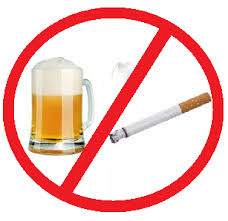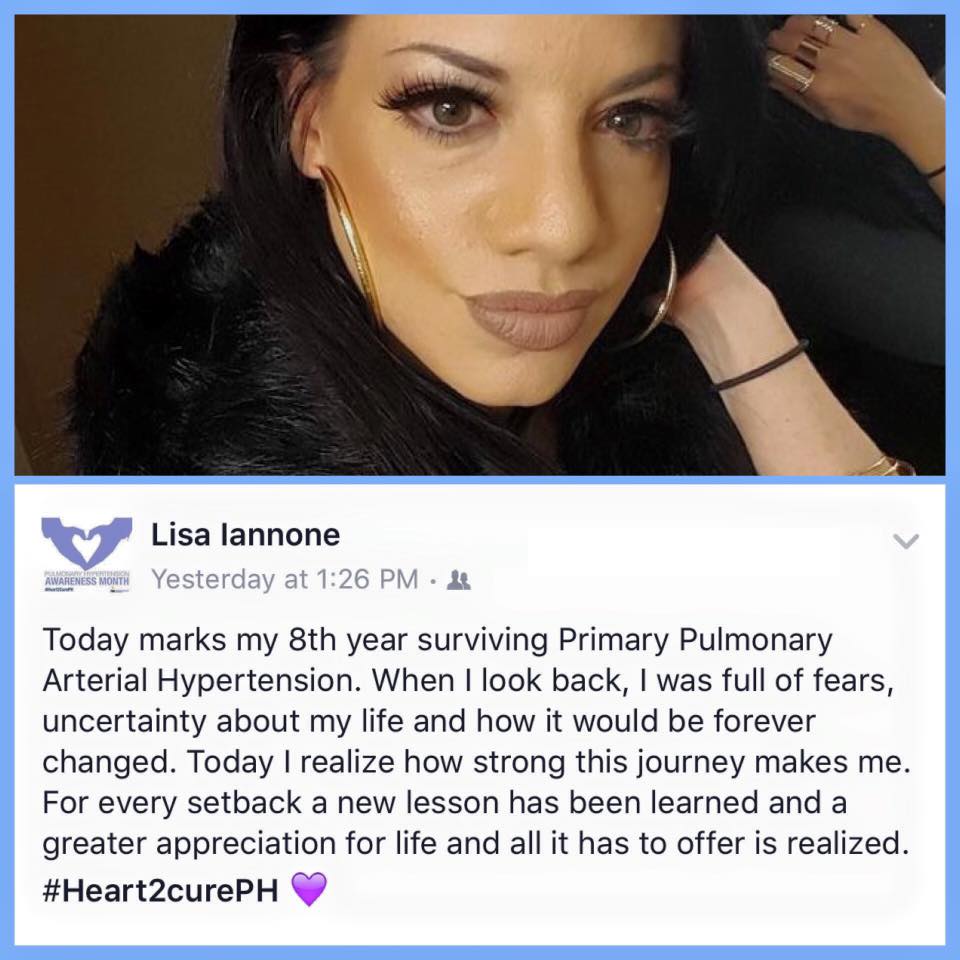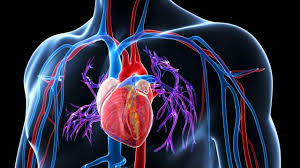In February of 2013, singer Chloe Temtchine was in the beginning of a promising music career as a back-up singer for Ne-Yo. She was the voice of an American Express commercial and had recently performed on David Letterman. Unexpectedly she would lay in the hospital with little ability to breathe, and on the brink of death. It was then when Chloe was diagnosed with a rare form of Pulmonary Hypertension. In an interview with Huffington Post, Chloe describes the disease with clarity, “PH is abnormally high blood pressure in the arteries of the lungs,” she explained. “It makes the right side of the heart work harder than it should.”
Chloe displays strength and tenacity with her will to continue to reach her dreams as a music artist. She has a strong following and you-tube channel that highlights her still beautiful voice that has been slightly affected by her illness, but doesn’t affect the quality of her music or her spirit. She advocates for the disease as she brings awareness to Congress and in hopes to continue to inspire congressional support by keeping awareness out in the public through her music.

This disease even affects celebrities in real life. The successful actress Queen Latifah, mother has has to deal with the complications of the Pulmonary Hypertension. In a People magazine interview, Latifah’s mother admiralty speaks of how her daughter helps her in dealing with the illness of Sclerdoma and Pulmonary Hypertension. Queen Latfiah makes sure she’s able to personally look after her mother. “It’s not a day or night that she doesn’t peek her head in my room and make sure I’m okay,” her mother says. “She sacrifices her time, her resources. She genuinely loves me and I know that.”
Lisa Lannone who has Pulmonary Hypertension has been an eight-year survivor of the disease. She recently celebrated her anniversary with the disease. Lisa recently proclaimed “When I look back, I was full of fears, uncertainty about my life and how it would be forever changed. Today I realize how strong this journey makes me.”
WHAT IS PULMONARY HYPERTENSION?
Pulmonary Hypertension is a type of heart disease that occurs in the arteries of the lungs. This disease cannot be detected through a routine doctor visit or check-up.
Pulmonary hypertension is often mistaken with high blood pressure. Well, there is a very huge difference. The blood pressure that you measure while using the arm cuff is systematic blood pressure in your left bronchial artery while the left side of your heart pumps oxygen enriched blood from the lungs throughout the entire body. Whereas, pulmonary blood pressure is totally in between the lungs and focuses on the regular blood flow of the lungs. Your right side of the heart receives the blood that has returned from the whole body and has no oxygen left. The blood exits through the lung vessels from the right side of the heart and again sent to the left side for oxygen enrichment. Another key difference to look out is that the pulmonary blood pressure is lower than the systematic blood pressure.
In numbers, a normal pulmonary artery pressure is 14 mm Hg while resting. If it’s greater than 25 mm Hg and 30 mm Hg while active, pulmonary hypertension may be present.
SYMPTOMS
In the case of pulmonary hypertension, the symptoms could differ for every individual. Yet, here are some of the basic symptoms that one should look out for;
- Shortness of breath while walking, exercising or in motion.
- Decrease of energy level during everyday activities
- Swelling of the limbs due to low blood flow. It can also cause lips to change color.
- Chest pains and irregular heartbeat
- Passing out and feeling frequent fatigue.
- Rapid breathing (Hypoxia)
- Complications related to Pulmonary Hypertension
- Pulmonary hypertension often leads to right side heart failure.
Due to the lack of proper oxygen in blood flow, blood clots can occur and can cause further damage to other organs of your body.
As the irregular heartbeats, you can faint, get palpitations, feel dizzy and things can get worse.
Bleeding lungs due to lack of blood flow. This will cause coughing up blood.
HOW TO HELP PREVENT PULMONARY HYPERTENSION
Pulmonary hypertension can’t be resolved or reversed easily. This fact makes this disease a ticking time-bomb in the lungs. A positive diagnosis of pulmonary hypertension, should be followed by precaution.

Stop smoking and drinking: Smoking cigarettes creates tar that’s stored in the lungs. It heavily damages the lung’s capability and for this reason, it can be fatal for patient with pulmonary hypertension. The condition can progress as smoking leads to a more possible case of cardiac arrest, hemorrhage and blood clots in the lungs. Alcohol is another substance harmful for your cardiac health. Alcohol reduces blood pressure, which further increases the possibility of heart failure.
Take physician recommended medication as prescribed: pulmonary hypertension has no specific medication. Instead, it is the medication for other passive diseases that can worsen the situation. Before taking any kind of medication, you should seek medical advice from a doctor. Because, some medication can dangerously increase your blood pressure, leading towards a cardiac arrest. So, before taking any medication, consult your pharmacist and doctor first.
In the fall of 2008, Marla Akins was experiencing a wonderful life enjoying her husband and her beautiful 6 year old daughter. She was practicing regularly for Gasparilla Distance Classic in Tampa, Florida. For the purpose of training, she ran 40 miles a week, she was in great health. But soon, sometime in October of 2008, her health started running in a different direction.
Marla went from running 40 miles to, barely running to the end of her neighborhood block. She would find herself quickly out of breath, and unable to complete the distance. Things got worse as time passed. Marla’s physical state became more ill. After consulting with her physician, Atkins learned she had pulmonary hypertension. Upon the news, she was told she had only 3 to 5 years to live. After seeking proper medical care and medication, she is now completely recovered and resuming her happy life with her family.
Marla’s story can become anyone’s story. Pulmonary hypertension occurs in every 30 to 45 million people. Those numbers don’t seem intimidating until it happens to you or one you know. Pulmonary Hypertension is in fact a rare disease. Its rarity should promote more awareness so that people may easily recognize its characteristics.
Contact the Pulmonary Hypertension Association for more information or help: https://www.phassociation.org/





